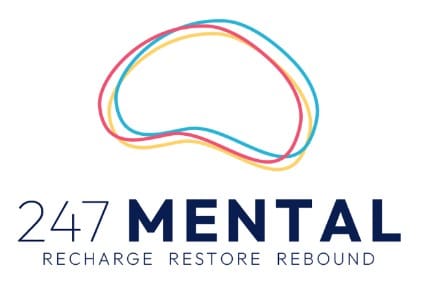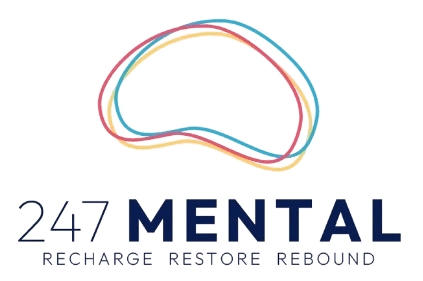Information About ADHD and Executive Function Disorder
Attention-Deficit/Hyperactivity Disorder (ADHD) is a neurodevelopmental disorder that is often misunderstood and surrounded by misconceptions. We are dedicated to providing clear, accurate information about ADHD to help individuals, families, and educators better understand and manage this condition. Our goal is to demystify ADHD, breaking down complex concepts into understandable terms and offering insight into the experiences of those living with ADHD.
ADHD is characterized by a pattern of behavior that includes difficulty maintaining attention, hyperactivity, and impulsiveness. It is one of the most common childhood disorders but can also continue into adulthood. Understanding
ADHD involves recognizing its three primary components:
- Inattention – Difficulty in sustaining focus, organizing tasks, and following through with responsibilities.
- Hyperactivity – Excessive movement and activity levels that are not appropriate for a person’s age or context.
- Impulsivity – Acting without considering the consequences, leading to hurried actions and potential difficulties in decision-making.
Keep in mind that these symptoms may manifest differently from child to child, and have shown gender differences as well. For example, girls are far more likely not only to have issues with inattention, but also have that inattention be something that occurs more internally. This is why it is sometimes harder to diagnose ADHD in girls, since the symptoms may not be as noticeable. Boys, on the other hand, have a higher likelihood of hyperactivity and impulsivity, as well as inattention that is more visually noticeable).
While the primary symptoms of ADHD are well-known, there are several other aspects that are important to understand:
- Variability of Symptoms – Symptoms can vary significantly from person to person, and not everyone with ADHD will have all the symptoms.
- Impact on Daily Life – ADHD can affect various aspects of life, including academic performance, work efficiency, social interactions, and self-esteem.
- Coexisting Conditions – ADHD often coexists with other conditions like learning disabilities, anxiety disorders, and mood disorders.
Also, keep in mind that some symptoms may be linked to coexisting conditions.
Early recognition and intervention are crucial in managing ADHD effectively.
Timely support can help in:
- Develop coping strategies and skills to manage symptoms.
- Preventing secondary problems related to self-esteem and social functioning.
- Enhancing overall quality of life through tailored educational and behavioral strategies.
We are committed to providing comprehensive support and resources for individuals with ADHD and their families.
Our services include:
- Educational resources to understand ADHD.
- Strategies for managing ADHD in different settings, such as home, school, or workplace.
- Support groups and workshops for individuals with ADHD and their families.
Understanding ADHD is the first step in a journey toward effective management and empowerment. We’re here to guide and support you through this journey, offering expertise, empathy, and encouragement. Whether you are an individual with ADHD, a parent, or an educator, we are here to help you navigate the challenges and harness the strengths associated with ADHD.
Executive Function Disorder is a neurodevelopmental condition that notably impacts cognitive control and self-regulation. This disorder primarily manifests through difficulties in managing thoughts, actions, and emotions, which in turn affects planning, problem-solving, decision-making, and goal-oriented behavior.
While commonly associated with children who have Attention Deficit Hyperactive Disorder (ADHD), Executive Function Disorder can also affect children and adults without ADHD.
Executive function encompasses a range of cognitive processes essential for regulating thoughts, behaviors, and emotions to achieve specific goals. Key skills under the umbrella of executive function include:
- Inhibition – This skill involves controlling impulsive responses, resisting distractions, and maintaining focus on relevant tasks.
- Working Memory – This refers to the ability to retain and manipulate information for tasks, follow instructions, and problem-solve.
- Cognitive Flexibility – This skill is crucial for adapting to changes, shifting attention between tasks, and altering strategies as needed.
- Planning and Organization – It involves setting goals, creating step-by-step plans, organizing resources, and systematically executing tasks.
- Time Management – This skill entails effectively estimating, allocating, and using time to complete tasks and meet deadlines.
- Emotional Regulation – This involves understanding and managing one’s emotions and appropriately responding to the emotions of others.
These executive functions are critical for maintaining control over various aspects of life and achieving goals.
Individuals with Executive Function Disorder struggle with one or more of these executive functions, leading to challenges in daily functioning, including time management and emotional control. The disorder can have a wide-ranging impact, affecting things that include:
- Academic Performance – Challenges in organizing schoolwork, following instructions, time management, and studying effectively.
- Social Interactions – Difficulties in understanding social cues and maintaining relationships due to impaired cognitive flexibility and emotional regulation.
- Time Management and Organization – Struggles with keeping track of time and staying organized in personal and professional settings.
- Planning and Decision-making – Issues with setting and achieving long-term goals due to challenges in planning and prioritizing.
- Emotional Well-being – Increased stress, frustration, and lowered self-esteem, impacting overall emotional health.
These clinical effects can further lead to secondary issues like anxiety and depression.
While Executive Function Disorder is lifelong, various strategies and interventions can assist in managing its challenges:
- Skill Building – Focused interventions to enhance specific executive function skills through exercises and practice.
- Environmental Modifications – Utilizing visual aids, checklists, and organizational tools to support executive function.
- Assistive Technology – Employing digital organizers and task management apps to compensate for executive function difficulties.
- Supportive Structures – Collaborating with educators and family members to implement tailored accommodations, like extended time for tasks and task breakdown.
Understanding the nuances of Executive Function Disorder is pivotal in developing effective strategies and interventions. By embracing a strengths-based approach and implementing targeted support, individuals with this disorder can lead fulfilling lives. Utilizing their unique strengths and compensatory strategies, they can navigate their challenges and achieve their goals, contributing positively to their academic, social, and personal endeavors.
Parenting a child with ADHD can have its challenges, as there are few resources available for most parents to navigate this distinctive way of looking at the world. Our ADHD Parent Coaching program is designed to provide parents with the necessary tools, strategies, and support to navigate the unique complexities associated with raising a child with ADHD. Our experienced coaches specialize in working with parents, offering guidance and empowerment to promote positive parenting practices and enhance their child’s well-being.
If you’d like to learn more about our classes, please click on the button below or reach out to our team today. We have private parent coaching, online parent coaching, and group classes in person for parents in our local area. Sign up today.
Raising a child with ADHD comes with its own set of rewards and difficulties. It is crucial for parents to have access to resources that can assist them in better understanding and meeting the needs of their child. Our dedicated Parent Coaches are equipped to provide valuable insights, practical advice, and emotional support to parents on their journey.
Our ADHD Parent Coaching program focuses on empowering parents to become effective advocates for their child’s well-being and success. Through personalized coaching sessions, parents will learn a range of skills and strategies to navigate the challenges associated with ADHD.
Some key areas covered in our coaching program include:
- Understanding ADHD – Our coaches provide parents with a comprehensive understanding of ADHD, its characteristics, and how it impacts their child’s daily life. This knowledge serves as a foundation for effective parenting strategies.
- Communication and Relationship Building – We help parents develop effective communication skills to foster strong and supportive relationships with their children. Strategies for active listening, positive reinforcement, and conflict resolution are explored to promote healthy parent-child interactions.
- Behavior Management – Our coaches provide guidance on implementing behavior management techniques tailored to the unique needs of children with ADHD. This includes setting clear expectations, establishing routines, and implementing positive discipline strategies.
- Advocacy and Collaboration – Parents will gain skills and knowledge to effectively advocate for their child’s needs in various settings, such as school, healthcare, and community environments. We empower parents to collaborate with teachers, healthcare professionals, and other support systems to ensure their child receives the necessary accommodations and interventions.
- Self-Care and Stress Management – Parenting a child with ADHD can be demanding, both physically and emotionally. We emphasize the importance of self-care for parents, providing strategies for managing stress, setting boundaries, and finding support networks.
- Building Resilience – Our coaching program focuses on equipping parents with resilience-building skills to navigate challenges and setbacks. Parents will learn techniques for promoting their child’s self-esteem, fostering independence, and developing problem-solving skills.
ADHD parent coaching is a great way to strengthen your coping ability, learn more about your child, and identify strategies to be the parent that you want to be.
Children, teens, and young adults who grow up with ADHD have the potential to, and often do, become incredible and successful adults. But the path to do so can be difficult, especially if a child struggles with executive function disorder. It can be one that is filled with a lot of disappointment and struggles with not meeting expectations – not only the expectations of their caregivers, but themselves as well.
Culturally, there is this belief that a person can achieve anything they want if they try hard enough and are motivated hard enough. It’s a belief that is taught in schools and in media. Children that struggle with something – such as focusing – experience something that motivates them to achieve it, and so they do.
Young people with this type of disorder are struggling with neurodevelopmental issues. Their minds did not develop some of the functions that neurotypical people developed. It’s not something that they can simply overcome with the right motivation, or something that turns on or off when they try hard enough. Motivation is a critical tool in the process, but it is not a solution in itself.
That is not to say that they cannot be incredibly successful in life with ADHD/EFD. It also doesn’t meant that they are unable to learn how to function with EFD. They absolutely can. They can learn ways to manage time, to prioritize, to organize, and to regulate their emotions. Children with ADHD and/or executive function disorder frequently grow up to become adults that live great, interesting lives.
But it isn’t just a desire to manage time better that leads to better time management. It is not a lack of motivation that prevents a child from cognitive flexibility. You typically cannot sit down and tell a child to have a better memory and expect them to have a better memory.
So what happens when a young person is given ample lectures and motivation to manage their ADHD symptoms, but not necessarily tools to do so give their conditions? They end up with high expectations for themselves and then may not be able to meet those expectations as the reality of living with executive function disorder and ADHD kicks in.

